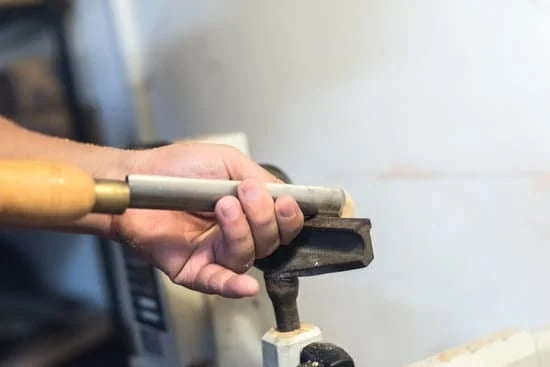Popular Woodworking Tool Guide
There are a variety of woodworking tools on the market, each with its own unique set of benefits and drawbacks. In order to make the best possible use of your woodworking tools, it is important to be familiar with their individual characteristics and how to use them effectively.
This guide will provide an overview of some of the most popular woodworking tools on the market today, including their key features and how to use them.
Chisels
Chisels are used for a variety of purposes, including shaping and trimming wood, removing excess material, and creating joints. Chisels are available in a variety of sizes and shapes, and are made from a variety of materials, including carbon steel, high-speed steel, and titanium.
Chisels are most effective when used in conjunction with a mallet. When using a chisel, be sure to position it so that the bevel is facing the material you are trying to cut. Strike the chisel with the mallet to cut the material.
Circular Saw
A circular saw is a power tool that is used to cut wood, metal, and other materials. Circular saws are available in a variety of sizes, and are most commonly used to make rip cuts.
Circular saws are activated by a switch, which causes the saw blade to rotate. When using a circular saw, be sure to position the material to be cut so that it is against the fence and the blade is at a 90-degree angle to the material. Activate the saw and slowly move it forward, keeping the blade in contact with the material.
Drill
A drill is a power tool that is used to drill holes in a variety of materials, including wood, metal, and plastic. Drills are available in a variety of sizes, and are most commonly used to make holes in a material that is perpendicular to the surface.
Drills are activated by a switch, which causes the drill bit to rotate. When using a drill, be sure to position the material to be drilled so that the bit is perpendicular to the surface. Activate the drill and slowly move it forward, keeping the bit in contact with the material.
Jigsaw
A jigsaw is a power tool that is used to cut curves and shapes in a variety of materials, including wood, metal, and plastic. Jigsaws are available in a variety of sizes, and are most commonly used to make curves and shapes that are not perpendicular to the surface.
Jigsaws are activated by a switch, which causes the saw blade to rotate. When using a jigsaw, be sure to position the material to be cut so that it is against the fence and the blade is at a 90-degree angle to the material. Activate the saw and slowly move it forward, keeping the blade in contact with the material.
Miter Saw
A miter saw is a power tool that is used to make miter cuts in a variety of materials, including wood, metal, and plastic. Miter saws are available in a variety of sizes, and are most commonly used to make miter cuts that are perpendicular to the surface.
Miter saws are activated by a switch, which causes the saw blade to rotate. When using a miter saw, be sure to position the material to be cut so that the miter gauge is at a 90-degree angle to the material. Activate the saw and slowly move it forward, keeping the blade in contact with the material.
Router
A router is a power tool that is used to create grooves, dadoes, and other decorative features in a variety of materials, including wood, metal, and plastic. Routers are available in a variety of sizes, and are most commonly used to create grooves and dadoes that are perpendicular to the surface.
Routers are activated by a switch, which causes the router bit to rotate. When using a router, be sure to position the material to be cut so that the bit is perpendicular to the surface. Activate the router and slowly move it forward, keeping the bit in contact with the material.
Ulster County Ny Woodworking Tools Finishes
Blog
Woodworking tools and finishes are two important elements of any woodworking project. The right tools and finishes can help you create beautiful, durable pieces that will last for years. However, it can be difficult to know which tools and finishes are right for your project. This blog will help you learn more about woodworking tools and finishes, and will provide tips for using them effectively.
The first step in choosing the right woodworking tools is to determine the type of project you are working on. Different projects require different tools. For example, if you are working on a cabinet, you will need a different set of tools than if you are working on a chair.
Once you have determined the type of project you are working on, you can start to select the right tools. There are a variety of tools available, from hand tools to power tools. Hand tools are typically less expensive than power tools, and are ideal for smaller projects. Power tools are more expensive, but they can save you a lot of time and energy.
When selecting woodworking tools, be sure to choose quality tools. Cheap tools may seem like a good deal, but they will likely not last as long as quality tools. Quality tools will also be more accurate and easier to use.
The next step in choosing the right woodworking tools is to select the right finishes. There are a variety of finishes available, from stains to sealants to paints. The type of finish you choose will depend on the type of wood you are using and the look you are trying to achieve.
Stains are ideal for adding color and depth to wood. They are available in a variety of colors, and can be used to create a variety of looks. Sealants are used to protect wood from moisture and decay. Sealants are available in a variety of finishes, from gloss to matte. Paints are used to create a finish that is both durable and beautiful. Paints are available in a variety of colors and finishes.
When selecting a finish, be sure to consider the type of wood you are using and the look you are trying to achieve. Some finishes are better suited for certain types of wood, and some finishes are better suited for certain looks.
Once you have selected the right woodworking tools and finishes, be sure to use them correctly. This means using the right amount of tools and finishes, and using them in the right order. Using the wrong amount of tools or finishes can lead to problems such as blotching or streaking.
By following the tips in this blog, you can select the right woodworking tools and finishes for your project. Use them correctly, and you can create beautiful, durable pieces that will last for years.
The Gripper Tool For Woodworking
The gripper tool is one of the most important tools in a woodworker’s arsenal. This simple tool can be used for a variety of tasks, from holding a workpiece in place to clamping it down to a workbench. The gripper tool is also perfect for when you need to apply pressure to a workpiece.
The gripper tool has a number of advantages over other clamps. First, it is very easy to use. You simply put it in place and tighten the screw. Second, it is very versatile. It can be used for a variety of tasks, from small to large. Third, it is very strong. It can hold a workpiece securely in place, even under pressure.
The gripper tool is perfect for a variety of applications, including:
• Holding a workpiece in place
• Clamping a workpiece to a workbench
• Applying pressure to a workpiece
Woodworking Tools Calgary Alberta
There is a wide range of woodworking tools available on the market, from small hand tools to large power tools. In order to get the most out of your woodworking tools, it is important to understand the different types of tools and how they are used.
The most basic woodworking tools are hand tools. Hand tools include chisels, saws, knives, and hammers. These tools are used to cut, shape, and finish wood. Chisels are used to carve wood, saws are used to cut wood, knives are used to cut wood and trim boards, and hammers are used to drive nails and screws.
Another basic type of woodworking tool is a power tool. Power tools include drills, sanders, routers, and saws. These tools are powered by electricity or batteries, and they are used to speed up the woodworking process. Drill bits are used to drill holes in wood, sandpaper is used to sand wood, router bits are used to rout out recesses in wood, and saw blades are used to cut wood.
In order to get the most out of your woodworking tools, it is important to understand the different types of tools and how they are used. By understanding the different types of tools and how they are used, you can select the right tools for the job, and you can use the tools safely and effectively.
Vintage Woodworking Tools For Sale Australia
If you are in the market for some vintage woodworking tools, then you have come to the right place! Australia is home to some of the most beautiful vintage woodworking tools in the world. Here, you can find all sorts of vintage woodworking tools for sale, including saws, chisels, planes, and more.
Vintage woodworking tools are becoming increasingly popular among woodworkers and DIY enthusiasts. This is because they offer a unique and charming aesthetic that is not found in modern tools. Additionally, vintage woodworking tools are often of a higher quality than modern tools, and they can be more affordable as well.
If you are interested in buying some vintage woodworking tools, be sure to check out the selection here at Australia. You are sure to find the perfect tool for your needs!

Hi everyone! I’m a woodworker and blogger, and this is my woodworking blog. In my blog, I share tips and tricks for woodworkers of all skill levels, as well as project ideas that you can try yourself.





